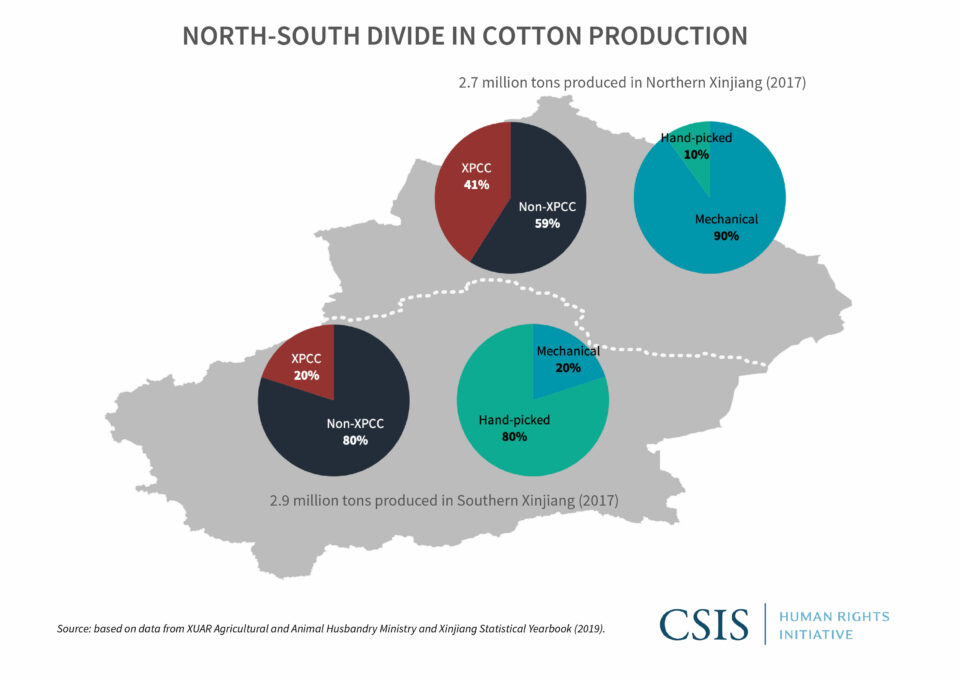A new report says major Chinese producers of critical minerals are using state-imposed forced labor programs in the Uyghur region to meet rising global demand, putting international brands they export to at risk of complicity in human rights violations.
According to the report by Hague-based rights group Global Rights Compliance, 77 companies and downstream manufacturers of critical minerals-based products operate in the Xinjiang Uyghur Autonomous Region (XUAR), placing them at risk of participation in the labor transfer programs in the lithium, titanium, beryllium, and magnesium industries.
The findings are likely to add to the due diligence concerns of foreign and multinational companies that source those products. Forced labor is on a long list of serious human rights problems that have been documented in Xinjiang, where the U.S. government determined in 2021 that China was committing genocide against the Uyghurs.
The Uyghur region is a major source of four critical minerals. It is the top source of beryllium, crucial for nuclear applications and advanced electronics, and one of the five province-level jurisdictions that produces raw magnesium. The region is also seeing a surge in lithium exploration, mining, and battery production to feed the electric vehicle industry, and accounts for 11.6% of the world’s titanium sponge, a key input in titanium metal that is used in aerospace and defense.
Over the past decade, Beijing has expanded exploration, mining, processing and manufacturing of critical minerals in the XUAR, transforming the region into a major “extractive hub,” Global Rights Compliance said in its report titled “Risk at the Source: Critical Mineral Supply Chains and State-Imposed Forced Labor in the Uyghur Region.”
China dominates global mineral production. The country leads production of 30 out of the 44 minerals that the U.S. government has designated as critical.
“The emergence of the region as an extractive hub relies, in part, on state-imposed forced labor transfer programs, targeting Uyghurs and other Turkic ethnic groups,” the rights group said.
The report highlights the “substantial influence” that these critical minerals – found abundantly in XUAR – have on global supply chains and multinational brands, including leading paint companies, aerospace applications, thermos producers, and defense and nuclear tools and components.
It uncovers 15 companies with documented sourcing directly from Uyghur region-based companies in the last two years and 68 downstream customers of Chinese producers who source inputs from the Uyghur region, highlighting the risk of companies’ direct and indirect participation in the forced labor programs.
“The XUAR’s systemic forced labor practices are not only a means to subsidize operating costs but also facilitate the government’s persecution of the Uyghur population through familial separation, land expropriation, and forced re-education,” Global Rights Alliance said.
The report highlights that China’s practices in the Uyghur region create unfair competitive advantages and trade and environmental violations that extend beyond human rights concerns.
Lax environmental standards and heavy dependence on coal have also made the region the epicenter of the energy-intensive mineral mining and processing industry and have enabled goods to enter global markets at artificially low prices, it said.
“Minerals mined and/or refined in the region routinely enter global supply chains through unregulated or opaque mineral distribution channels. As a result, significant portions of the world’s economy are potentially exposed to products tainted by forced labor and high carbon footprints,” the rights group added.
The report’s findings were based on analyses of state media, shipping records, and marketing and corporate annual reports.
Edited by Mat Pennington.




